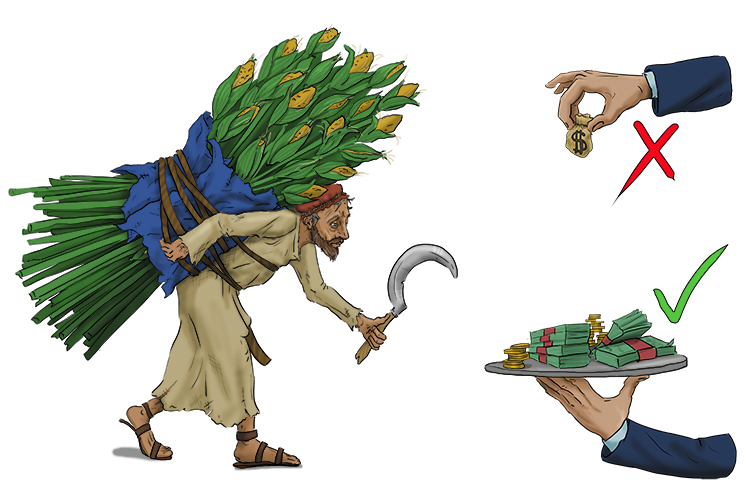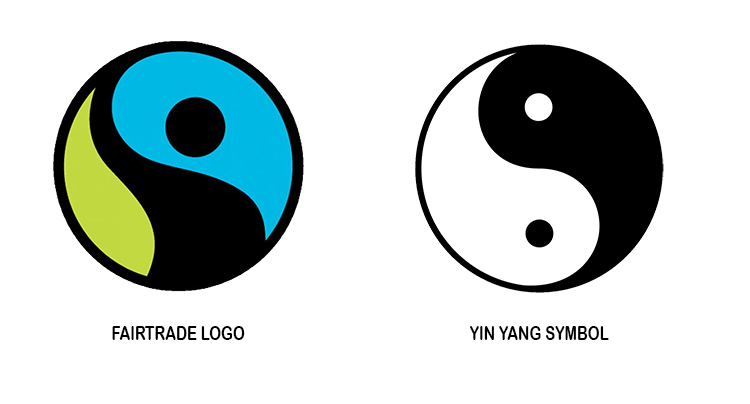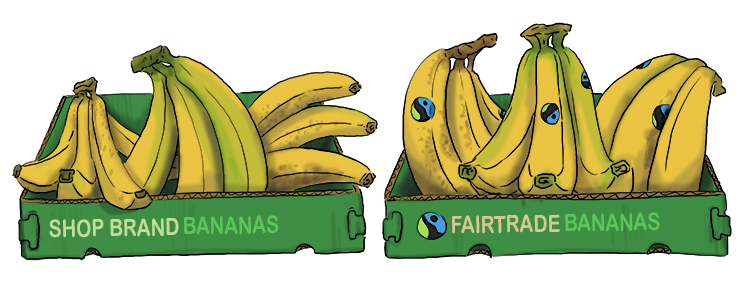Fairtrade – Scheme through which producers in low-income countries (LIC's) are given a better price for what they produce. Often these are farm products like cocoa, coffee and cotton. The better price improves income and reduces exploitation
To remember the meaning of the term Fairtrade, use the following mnemonic:
Fair tray (Fairtrade) of money for the hard work of the farmer. A better price will reduce poverty.

The Fairtrade symbol can only be placed on products when the international team who regulate this symbol has formed an agreement with the farmers, who have to agree to being checked regularly for compliance, which includes:
- No discrimination against workers
- Social Rights of workers
- Job security for workers
- Training
- Good health and safety
- Environmentally sound agricultural practices
- No child labour

To remember what the Fairtrade symbol looks like, note that it is similar to the Yin and Yang symbol. The main difference is that instead of being black and white, it is blue and green like sky and earth.

The price of bananas in UK supermarkets dropped from around 18p per banana a decade ago to just 11p per banana in 2020. Families growing bananas for a living are finding this unsustainable.
As a comparison, in 2020:
1kg of Fairtrade bananas = £1.25
1kg of Bananas normal price = £1.09
Customers pay more for the Fairtrade product, but they are making a difference in poorer countries.




